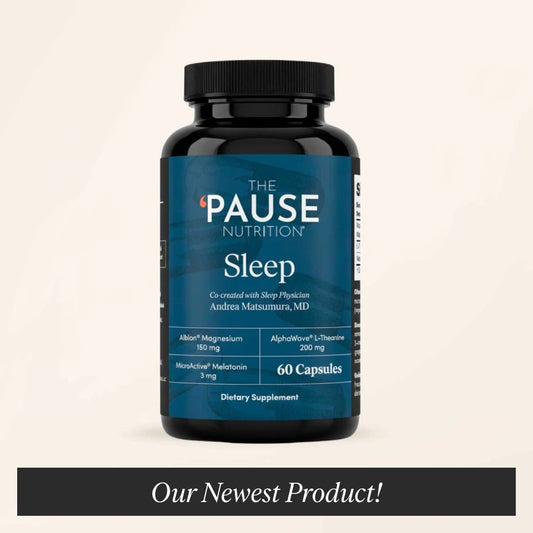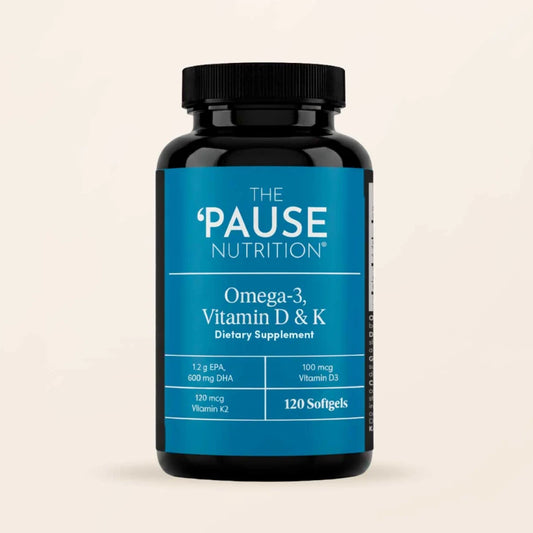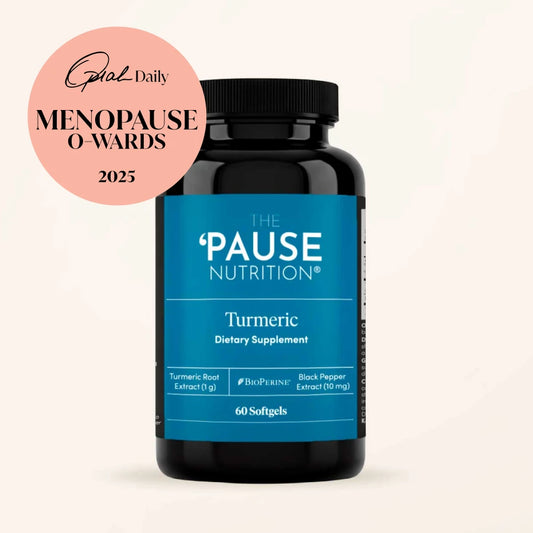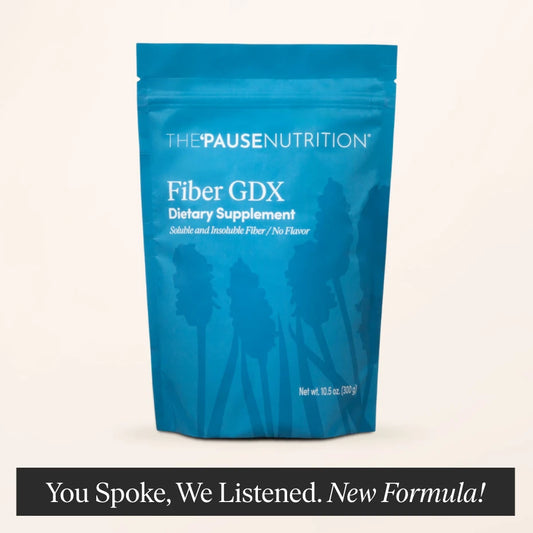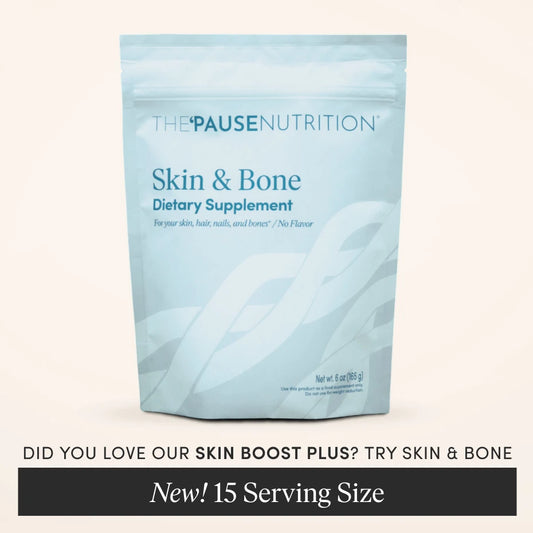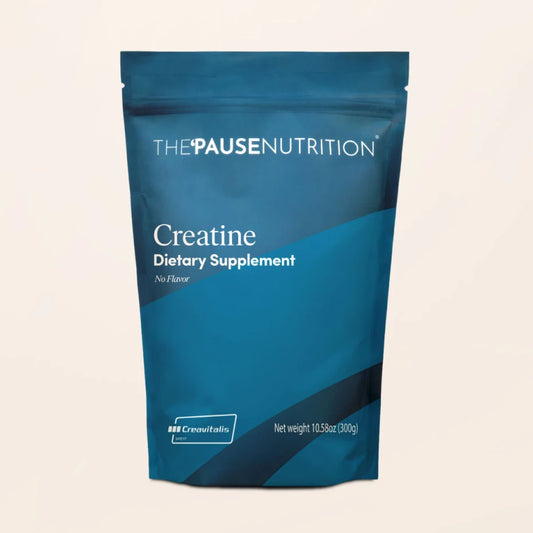Top 10 Menopause Myths: BUSTED!

Share
All women who are fortunate to live long enough will experience menopause. Similar to puberty, it is a natural and unavoidable phase of life. And, just as no two people are the same, no two journeys through menopause are the same, and there is no part of the body that isn’t affected by this transition. To drive that point home, consider that there are over 37 symptoms of perimenopause and menopause, many of which continue to be bothersome, and affect women’s long term health and quality of life.
Research has determined that hormone replacement therapy (HRT) is a safe and effective treatment option that can alleviate many symptoms of menopause. The North American Menopause Society even published a position statement recently, outlining the benefits, but there are many myths and misconceptions surrounding it. My intention is not to convince anyone to take HRT, but to dispel rumors and misinformation and provide you with the most current and accurate information so that you can make an informed choice as to what is best for you.
Myth #1: There Is Only One Type Of HRT.
Reality: Now more than ever, women have options! We have access to newer, more sophisticated formulations that contain the same molecules that a woman’s body produces naturally (known as body-identical). These formulations may be applied topically (transdermal), taken orally, used alone (estradiol) or in combination (with progesterone). We now have FDA-approved bioidentical hormone regimens that may offer effective relief with fewer side effects and risks than the HRT of the past. My favorite method of prescribing hormone therapy for my patients is with a body-identical FDA (and usually insurance approved) estradiol patch, and if she also needs it, oral micronized progesterone.
Myth #2: Bioidentical Compounded Hormones Are Safer Than FDA-Approved Pharmaceuticals.
Reality: The term “bioidentical” appeals to many women because they think they’re more natural, which must make them safer. However, compounded bioidentical formulations are not subject to the same scrutiny as traditional FDA-approved HRT. This means that their dosage and efficacy may be inaccurate and insufficient. The FDA has approved bioidentical hormone formulations, which are far less expensive than non-approved types and that have undergone rigorous testing for safety AND efficacy. A woman should work closely with her provider to determine the most effective type of HRT for her individual needs.
Myth #3: HRT Increases The Risk Of Heart Disease.
Reality: The Women’s Health Initiative (WHI), a large study reported on in 2002 suggested that HRT increased the risk of heart attacks, strokes, and breast cancer. However, the average age of the study participants when enrolled was 63, and they only took conjugated equine estrogens (CEE) alone if they had no uterus, or CEE AND medroxyprogesterone acetate otherwise. No other formulations were studied. This study found that in older patients, the risk of cardiovascular disease was increased – but these patients likely had underlying coronary artery disease. Therefore, HRT may not necessarily increase your risk of heart disease and may offer benefits to certain women. In fact, when estrogen is started within 10 years of menopause, the vast majority of women will see a reduction in death from cardiovascular disease. Read this article to learn more about what you can do to mitigate your risk of heart disease.
Myth #4: Estrogen Causes Cancer.
Reality: This is perhaps the most common myth. The above study actually found that the patients who were on CEE alone had at least a 30% decrease in breast cancer over time. And although the CEE + MPA arm of the study did find an increased risk of breast cancer (1 woman per 1,000 women per year over baseline), the mortality from breast cancer was not increased, and is based on an older, misinterpreted study. Also, women who were on either regimens noted above, had no increased risk of cancer in the first five years of therapy. For healthy women who are younger than 60, or are within 10 years of her onset of menopause, the favorable effects of hormone therapy on cardiac, muscle, bone and brain health should be considered.
Myth 5: HRT Is The Only Resolution To Menopausal Symptoms.
Reality: There are many ways to effectively manage symptoms that do not involve hormone therapy. There are multiple medications that can be used to treat the frequency and intensity of hot flashes and night sweats (veloxifine, clonidine and neurontin for example). Other non-hormonal medications can be prescribed to treat symptoms ranging from bone density issues to overactive bladder. Some report a reduction in symptoms when taking certain herbal supplements or having a diet rich in soy.. Don’t be afraid to speak with your healthcare provider about all the available options and determine what might be the best option for you.
Myth #6: Women Who Enter Menopause Early Should Avoid HRT.
Reality: More than two-thirds of women enter menopause before age 50, and for this group, starting HRT early can be a lifesaving strategy. A study from 2012 suggested that women who started HRT within ten years of menopause had a 30 percent lower mortality rate and a 48 percent lower risk of heart disease compared to women who took a placebo. Early integration of HRT may offer significant health benefits to women who enter menopause before age 50.
Myth #7: Only Severe Menopause Symptoms Need Treatment
Reality: If you have followed me on social media, you’ve probably heard me say “menopause is inevitable, suffering is not.” Even mild to moderate symptoms can be bothersome and life disrupting and if there is treatment available, it’s worth doing some investigating with your provider! Some menopausal changes, such as a loss of bone mass and early symptoms of cardiovascular disease, may only be detected through preventive screenings.
Remember that not all menopausal symptoms are physical. Sudden shifts in hormones can lead to changes in mood, memory and concentration. Estrogen and progesterone are key hormones that have an impact on our neurotransmitters. Estrogen acts by inhibiting the breakdown of serotonin making higher levels available in the brain, keeping us happy and preserving memory. Progesterone has an effect on Gaba-like receptors in the brain which can help us to relax and not be so anxious.
Myth #8: Menopause Symptoms Don’t Last That Long
Reality: Many women think their menopause symptoms will only last about a year or so, and then everything will return to normal. The truth is, the course of symptoms is unpredictable and studies show menopause symptoms can last anywhere from 4 to 14 years. This is a substantial chunk of a woman’s life, and is likely happening at the time she’s juggling a career, family demands, and aging parents.
Myth #9: I Don’t Have Symptoms, So Menopause Must Be Over.
Reality: Menopause isn’t something you “get over.” Menopause is an ongoing process that continues for the rest of your life. Symptoms may come and go or change over time, depending on hormone levels and other factors. You may experience new symptoms out of the blue or medications that once gave you relief may stop working.
Myth #10: Lifestyle Strategies Don’t Work.
Reality: Creating your own total health toolkit, and adopting certain lifestyle habits such as proper sleep, nutrition, exercise, and stress management can help minimize menopausal symptoms. Following an anti-inflammatory approach to nutrition, like The Galveston Diet, can help reduce the frequency and severity of hot flashes. To determine if your nutritional choices are causing or fighting inflammation, you can take my quiz. Lifestyle changes can help to reduce the discomfort associated with menopausal symptoms or complement medical treatments.
In conclusion, HRT can be an effective treatment option for menopausal symptoms, and women have many options to find the most suitable type of HRT for their needs. It’s essential to consult a healthcare professional before taking any hormone therapy and to debunk any myths or misconceptions surrounding HRT.
BONUS Myth: Once You’re In Menopause, It’s All Downhill
Reality: Even after the major changes of menopause take place, you still have hormones and imbalances can continue, resulting in post-menopausal symptoms. Due to lower estrogen levels, postmenopausal women can continue to experience uncomfortable symptoms and can benefit from HRT.
With that being said, you may find that after menopause, you have a new outlook on life! You’re free from the pressure that comes with your reproductive years and are no longer plagued with the physical and emotional symptoms of your menstrual cycle.
In addition, you may feel a newfound sense of empowerment and confidence! You may have more energy to focus on yourself, your relationships and your goals for the future. You may feel more free than you have in years! Enjoy the blessing that you lived long enough to experience menopause and make this time some of the best times of your life!













